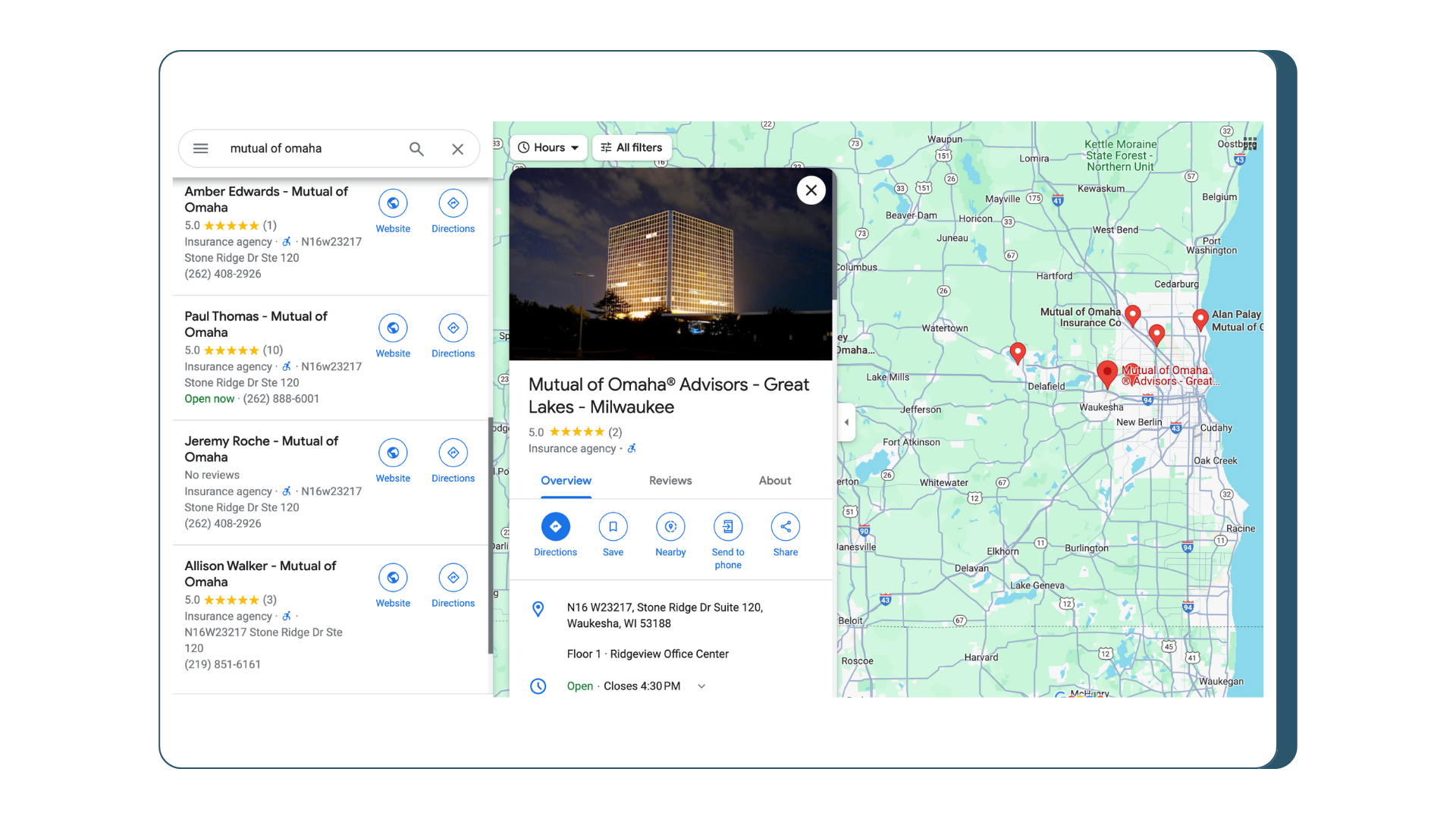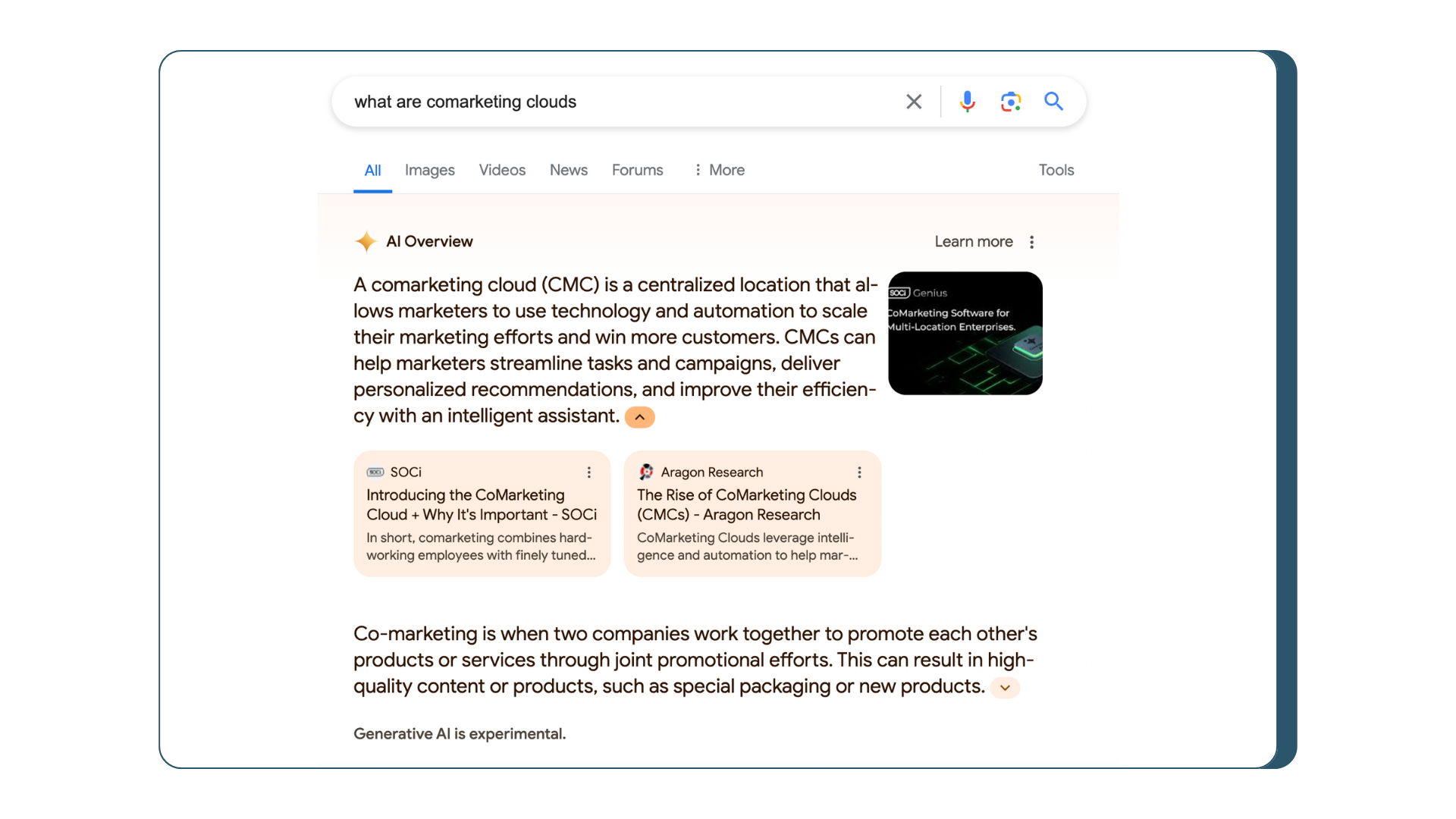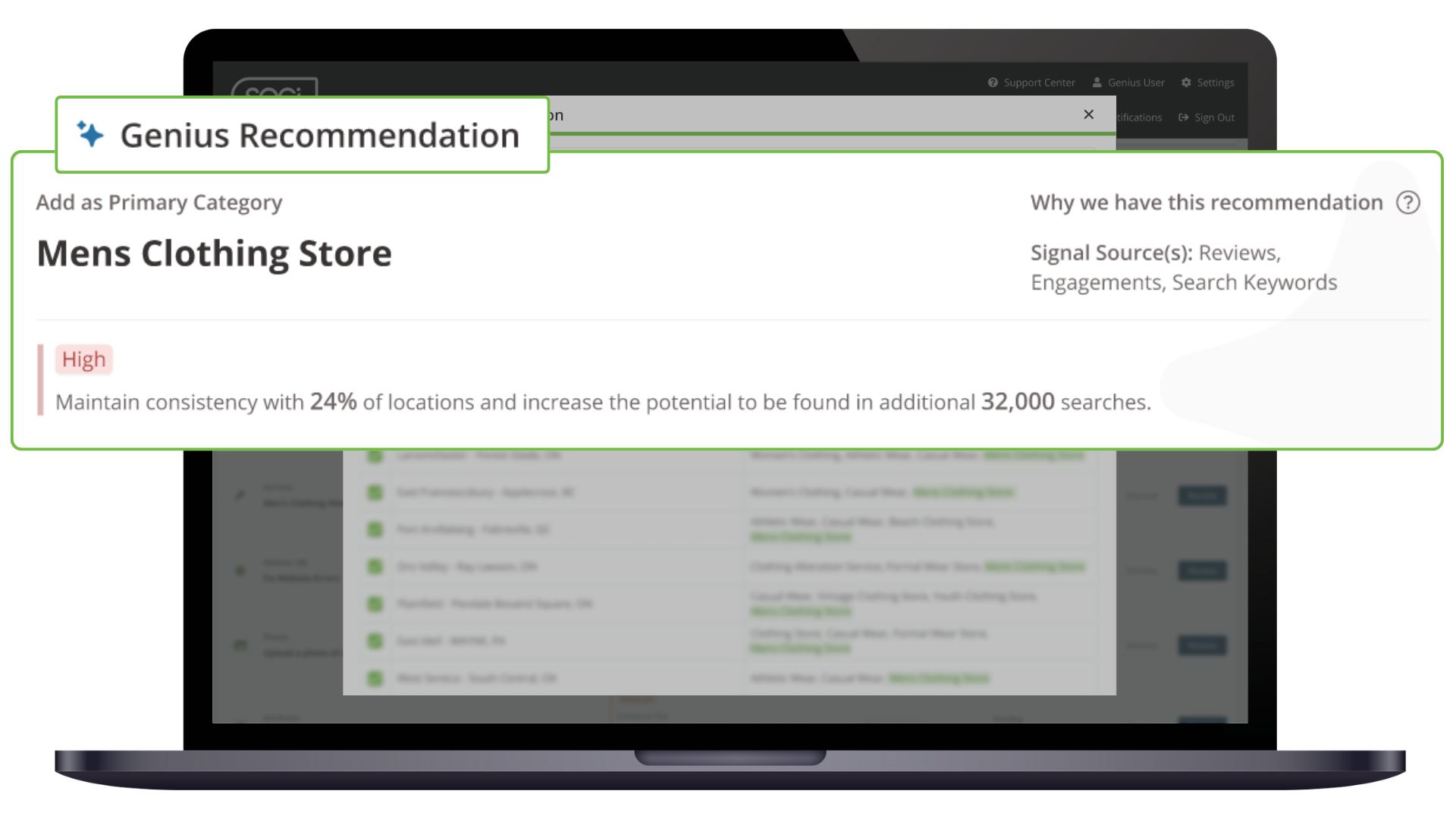Local Memo: Google Search Console Drops Page Experience Report, Adds Recommendations
Elevate Your Listings With Comprehensive Google Optimization

Elevate Your Listings With Comprehensive Google Optimization
Today, multi-location businesses face unique challenges in maintaining visibility and credibility across all locations. Optimizing your local listings is crucial for brands, franchise owners, and marketers who want to ensure their locations appear prominently in local searches. However, maintaining basic business listings is no longer enough in today’s competitive online environment. It has become more crucial than ever to go beyond merely updating your name, address, and phone number (NAP). Appearing in non-branded searches matters immensely since 90% of searches are unbranded and are instead informational (80%) and transactional (10%). For instance, people aren’t searching for “Old Navy near me” anymore. They’re using “clothing store” or “retail store.” Our LVI data also found that the average retail business only appears in 33% of Google 3-pack results, meaning that businesses are nearly invisible in two out of three non-branded searches. Alternatively, brands that fully optimize their local search presence appear in the 3-pack twice as often. This blog post explores:- Why local listing optimization is essential
- How Google's changing algorithm influences local SEO tactics
- Practical steps to achieve local listing optimization
What Are Local Listings?
Local listings are online profiles of your business on local directories or search engines. They often include business information like your name, address, and phone number (NAP).
Understanding the Evolving SERP Landscape
The search engine results page (SERP) landscape is constantly changing due to Google updating its search algorithm and ranking factors. We found that Google implements more than 20 changes to its search algorithms each month, ranging from introducing new categories to altering ranking systems.

You Must Leverage Google's Features
Google's deliberate deployment of new SERP features aims to enhance user experience and engagement. Simply having accurate NAP citations on their listings isn't enough for multi-location businesses to rank well for non-branded searches. Google even states that "businesses with complete and accurate information are easier to match with the right searches." The tech conglomerate encourages businesses to fully utilize additional listing elements such as attributes, business descriptions, photos, Q&A sections, services, and categories. Let's explore some key Google features and data that highlight the importance of leveraging them.Attributes:
Our Top Ranking and Conversion Factors for Local Search research found that 43% of GBPs in rank positions 1 through 20 display at least one prominent attribute. If you’re not familiar, attributes are like tags that tell consumers what your business offers. For example, a restaurant might add the attributes “Curbside pickup” or “Outdoor seating.”Photos:
Our research also found that 44% of local search results contain a featured photo in the summary listing. However, only 3.4% of photos in GBPs were uploaded by the business, meaning that Google users upload most photos, which might not reflect the company well. As a multi-location brand, it’s important to ensure that you have uploaded high-quality pictures to your local listings showcasing your storefront, products, services, and employees.Questions and Answers (Q&A):
Our 2023 Local Visibility Index (LVI) research found that 92% of customer questions on GBPs go unanswered, including simple inquiries like "Do you sell athletic clothes?" or "Are you open on Thanksgiving?" While potentially overwhelming, responding to Q&As is crucial for improving engagement on the platform, and can impact visibility. You're missing out if your brand isn’t responding to its Q&A across locations. Engaging with your Profile through Q&A shows activity and can be a positive signal for Google's local search ranking algorithm.The Importance of Seasonal SEO
While leveraging the features above is important, focusing on search engine optimization's seasonality is also vital. Whether you operate in property management, retail, or the restaurant industry, different times of the year will hold unique significance for your business. Optimizing your Google presence to highlight relevant seasonal aspects can dramatically enhance visibility for non-branded searches, which we've noted are highly competitive but immensely valuable. For instance, a retail business in New York City and Miami would highlight different clothing in March. The NYC store could include GBP Posts promoting winter clothing sales, while the Miami store might highlight the new spring tops and shorts collection. Customizing your local listings to reflect seasonal relevance and local preferences can boost visibility and engagement across locations, attracting more customers and optimizing their presence in local searches.Future of Local Listing Optimization
Google's AI Overviews and Gemini
Google's AI Overviews (AIOs) and Gemini reveal how local search is evolving to provide quick, AI-powered answers or generative AI results (GAIRs). Staying updated with these AI and algorithmic changes will help businesses adapt their strategies effectively. To start, read our recent research on which AI chatbots perform best in local genAI results.Emerging Trends and Technologies
Emerging technologies and trends will shape the future of local listing optimization as well. Generative Engine Optimization (GEO) will become necessary as AI-powered search results appear more often. Read our article on GEO for more details and tactics.Introducing Genius Search: Elevating Your Local Search Strategy
We found that a single local SEO specialist would spend an average of 20 hours to optimize one GBP fully. If you have 100 locations and are optimizing monthly, that equates to 24,000 hours or 66 days (20 x 100 x 12 = 24,000 / 365 = 65.75 days). There’s an easier way to manage your GBPs and other local listings! Our new product update, Genius Search, revolutionizes local search strategy by integrating AI-driven insights and tailored recommendations directly into your listings management. Genius Search analyzes top local-search ranking factors and real-time local consumer activity to optimize each local listing fully. Genius Search simplifies the complexities of local SEO by offering:- World-Class Listings Management: With the market's most advanced data health capabilities, businesses can ensure their locations appear accurately on impactful local search networks.
- Real-Time Local Data Analysis: Genius Search works like having a data scientist at every location. It gathers and analyzes real-time local data to report on consumer activity and traffic trends.
- One-Click Task Automation: Genius Search enables brands to automate hundreds or thousands of high-impact, locally-tailored optimizations with a click of a button.











